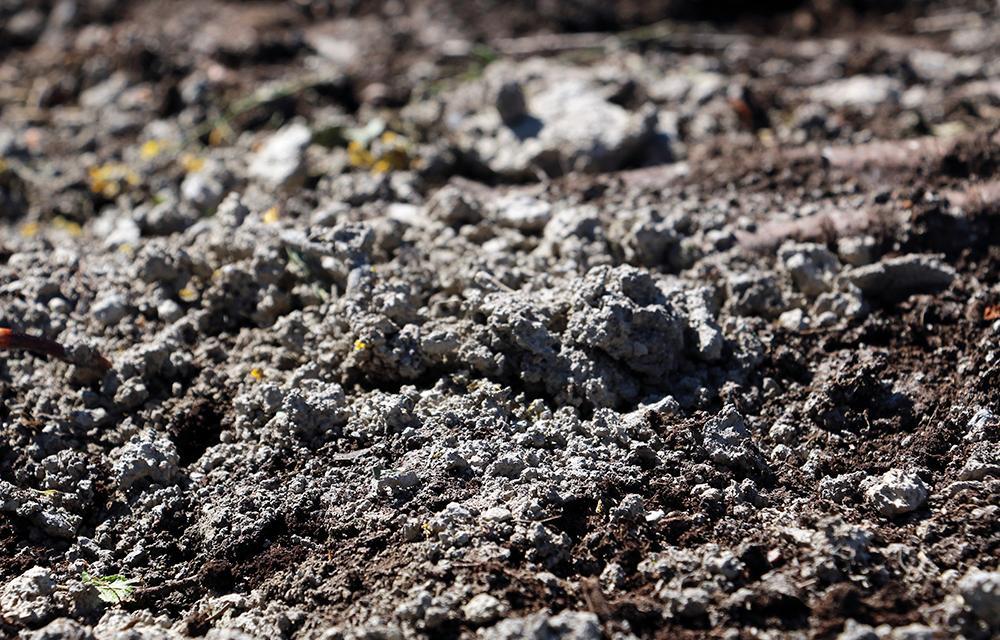MTK on the Commission's soil strategy: healthy and functional soil is vital but above legislation - MTK en
News
MTK on the Commission's soil strategy: healthy and functional soil is vital but above legislation
25.11.2021
On 17 November 2021, the Commission published its proposal for the soil strategy for 2030. The protection of the vitality and functions of terrestrial ecosystems is essential. On the other hand, the Commission's references to the Soil Health Law, where the new regulation would ensure good soil health by 2050, are unrealistic. Soil functions are significantly regulated by weather conditions and the quality of the soil parent materials which are not in human hands. What is adjustable for the functioning of terrestrial ecosystems is already regulated. Instead, an update is needed for e.g. anti-pollution laws, as proposed by the Commission.
Healthy and functional soil is a prerequisite for human well-being and food security, as well as for nature and the climate. A common soil strategy to protect terrestrial ecosystems and the state of growth is therefore to be welcomed. The Commission's DG Environment's references to additional legally binding legislation on soil management are worrying. The Soil Health Law would provide for overlapping regulation and seek to regulate soil functions that cannot be influenced locally by humans. Instead, according to the proposed strategy, it is a good idea to update legislation e.g. with regard to sludge and waste water treatment, so that nutrient recycling does not jeopardize the cleanliness and health of the soil as the circular economy becomes more widespread. Joint guidance is also needed for the handling and construction of soils.
Agriculture and forestry are already subject to a great deal of soil-related regulation at EU level
Agriculture and forestry are already subject to a great deal of soil-related regulation at EU level: the Nitrates, Water Framework and Habitats Directives and the legislation on plant protection products and fertilizers. As a result, soil functions and biological activity are already being widely taken into account, even though the EU does not have its own soil law.
- The changing climate challenges soil functions such as water infiltration, erosion resistance or nutrient uptake. Cultivability and yield, as well as the efficient use of nutrients, are major challenges for industries in a changing climate. It will also be difficult to tolerate irrelevant additional regulation. There must be room for local action that best suits local conditions. Adapting to climate change is one of the key measures to protect the soil, says Liisa Pietola, Environmental Director at MTK.
The soil management measures set out in MTK's soil program are in line with the Commission's proposal
The soil must be valued, and its cleanliness and growth potential promoted, MTK and SLC's soil program outlines, as does the Commission. The soil program, drawn up by farmers' organizations and scientifically evaluated, reveals the foundations of functional soil, describes the limited role of man in the protection of soil functions, and the great research gap that makes it difficult to monitor the state of the soil. The measures in the program are in line with the Commission's proposal for sustainable soil management practices, which have also been promoted by conventional cultivation.
- Commissioner Timmermans' attention to recognizing the value of soil is important and is supported by MTK. Promoting soil health requires extensive co-operation, which also recognizes the beneficial effects of agriculture and forestry on soil function and health. Only in this way can we achieve all the vital tasks of the soil, which the Commission also lists, Pietola points out.
The proposed strategy emphasizes the biological, chemical and physical state and functions of the soil, i.e. ecosystem services to meet food security and biomaterials, water and nutrient cycling, micro-organism activity and gene pool, and carbon sequestration and storage, all linked to sustainable farming practices.
- However, the end result is the result of cooperation with nature, which is regulated by weather factors and the history of soil formation. In addition, the result is affected by the challenges of a warming climate, i.e. floods, diseases and pests, including invasive species, Liisa Pietola sums up.
At its best, the strategy promotes soil well-being by promoting a business model that encourages land managers, such as farmers and forest owners, to adopt climate- and nature-friendly methods that increase the country’s growth condition and vitality. This requires plant nutrients according to the needs of the plant, as well as plant health, which as a whole cannot be forgotten when outlining the use of fertilizers or plant protection products.
New soil information will continue to be needed
The proposal pays a lot of attention to soil and the digital agenda, soil information and monitoring, and soil research and innovation. These are essential for expanding the knowledge base for soil management and for expanding the availability and use of research results. New information is also needed as a basis for the protection requirements of organic soils.
There are different organic soils: thick and thin peat layers, decayed and close to mineral soils. MTK's major concern is the fate of organic soils, as the Commission sets restoration targets or restrictions on use on organic soils not only for peat soils but all soils having organic material > 20%. Drought-resistant organic soils with high nitrogen reserves will continue to be needed in the Finnish bioeconomy - and especially to offset weather risks.
Thus, the use of drained organic land should not be restricted by new binding legislation, but by taking advantage of the proposals of MTK's and SLC's Biodiversity Program, such as 1) Mires of a natural or semi-natural state are not drained and alternatives to clearing for agriculture are being sought and 2) More research is needed to determine how to better safeguard the mire environment in forestry operations.
Further information:
Liisa Pietola, MTK's Environmental Director, +358 50 4384014, liisa.pietola(at)mtk.fi

